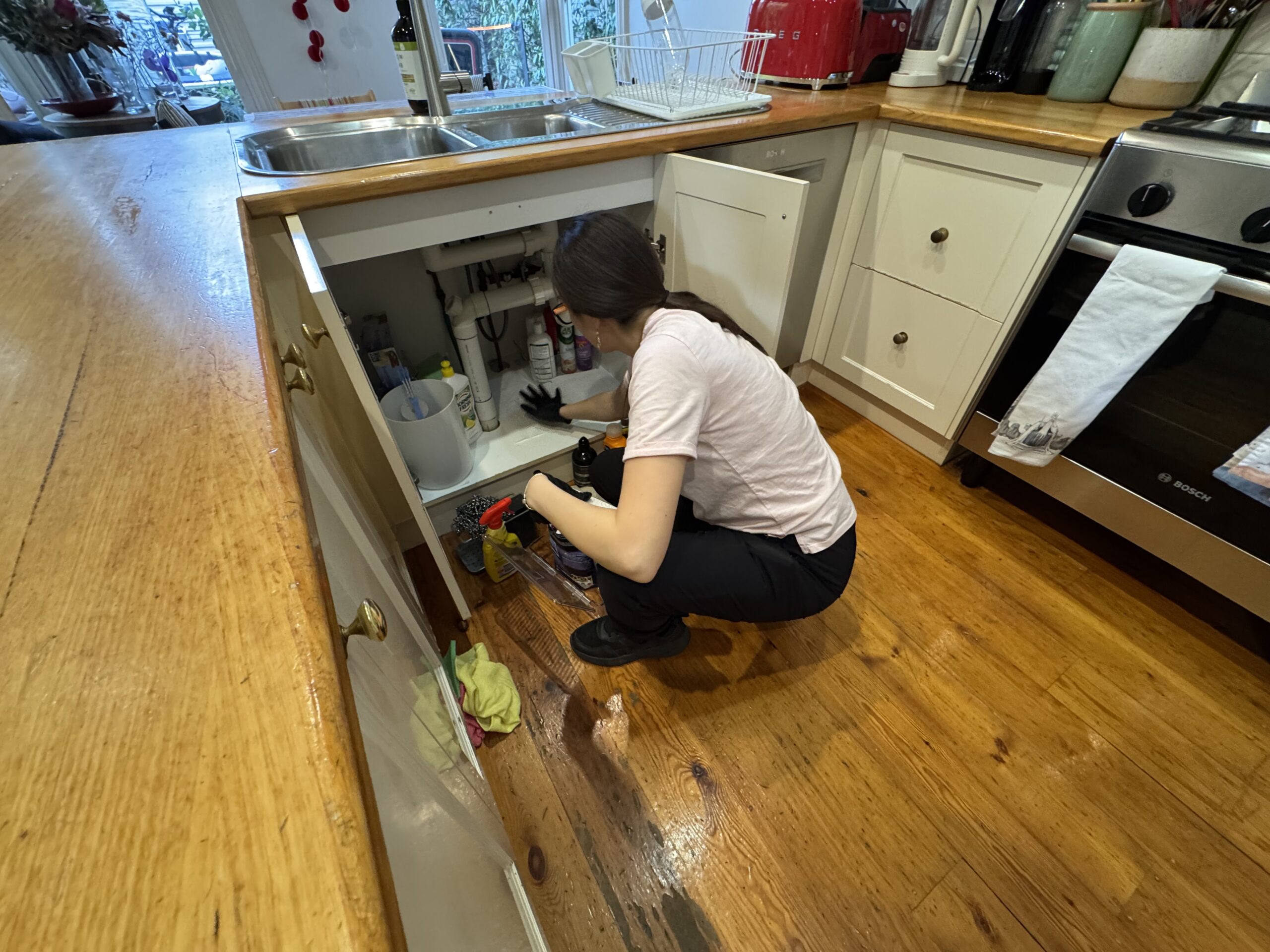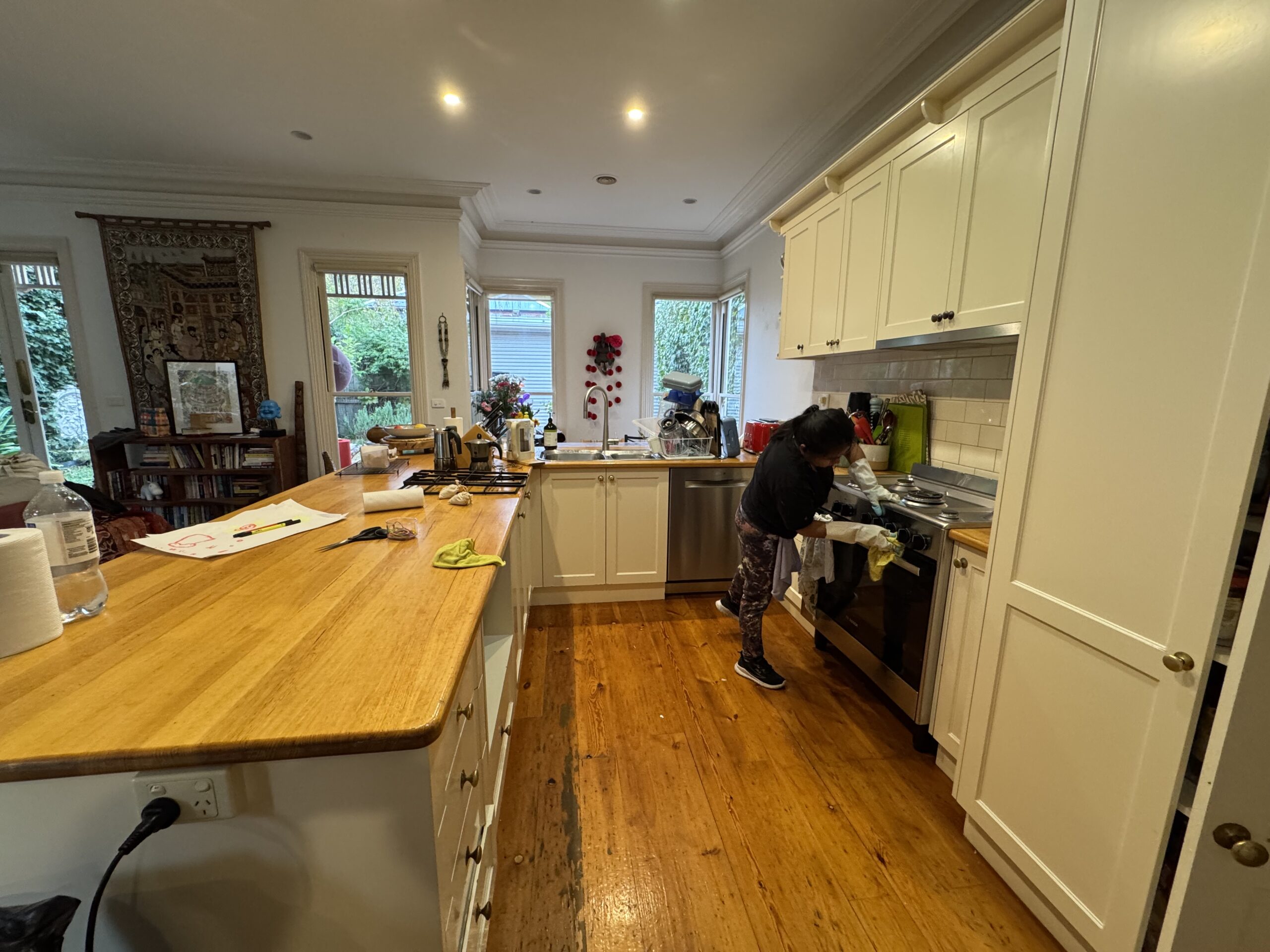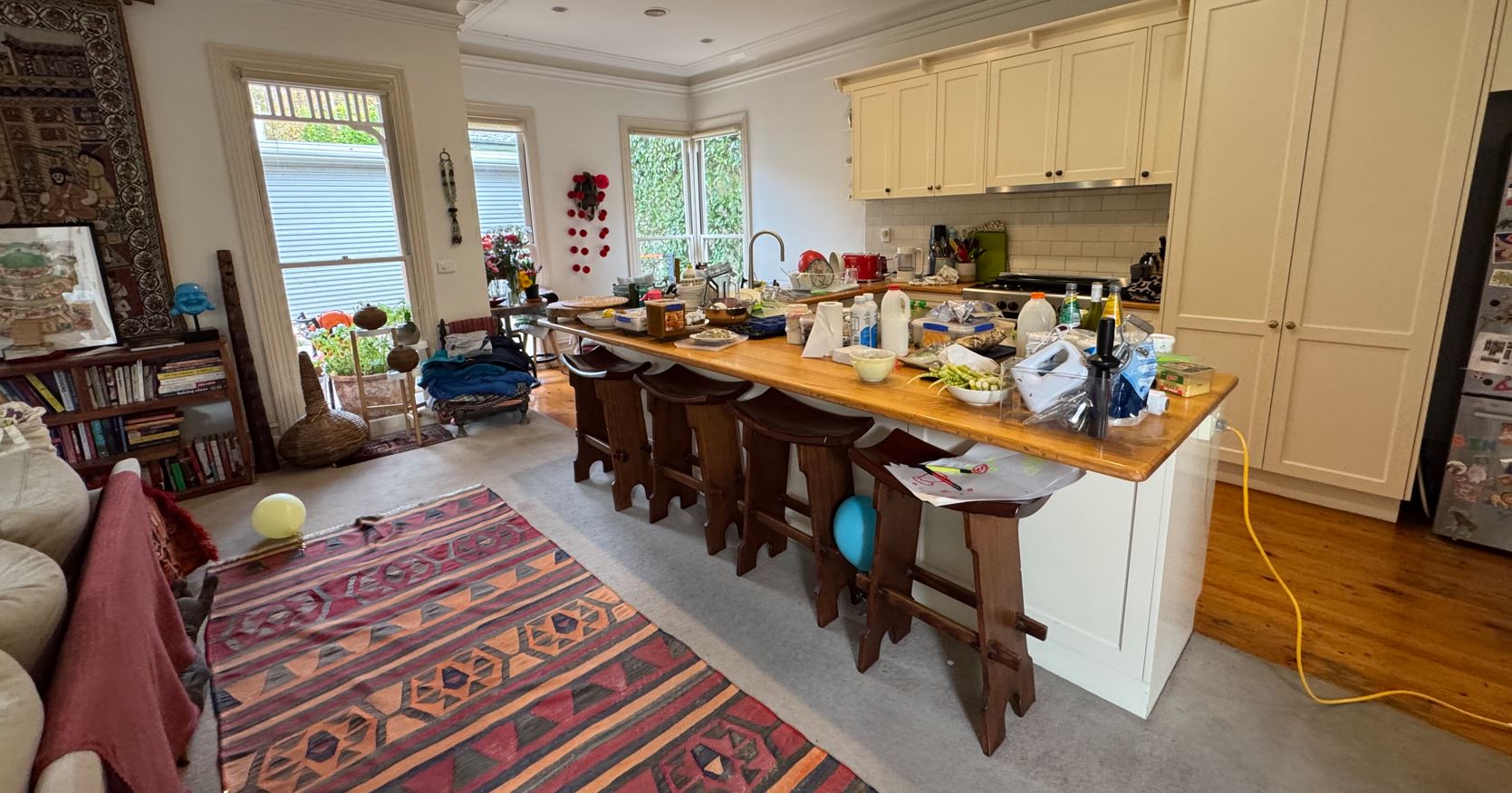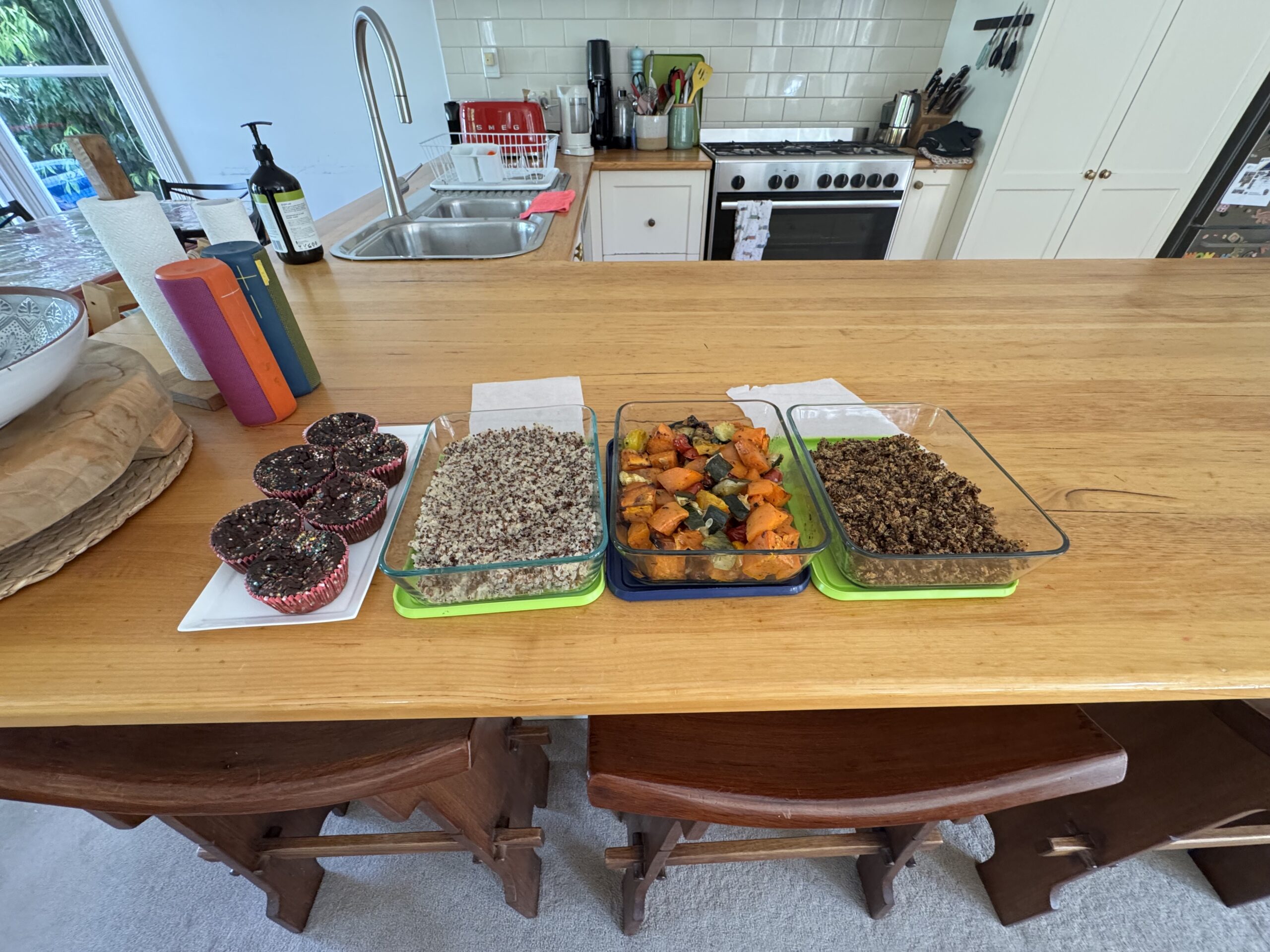If you’re feeling tired all the time—even with a cleaner, a partner, or older kids helping out—you’re not alone. Many of our clients say the same thing: “Why am I always tired?” Even when someone else is vacuuming or stacking the dishwasher, the fatigue doesn’t lift.
Here’s the truth: help with the “doing” is not the same as relief from the “thinking.”
What you’re likely experiencing is exhaustion at home caused by an invisible mental load.
The Mental Load: The To-Do List No One Sees
The mental load is the constant, background brain activity that keeps a household running.
It’s the remembering, reminding, noticing, planning, deciding, anticipating, checking, and managing.
- Noticing that the milk is running low
- Remembering that soccer uniforms are needed tomorrow
- Knowing your child hates tuna sandwiches
- Planning meals around everyone’s preferences
- Deciding what to cook, buy, and clean
- Worrying if your mum’s okay
- Wondering if the towels have been in the washer too long
Even when someone else is doing the laundry or the cooking, the thinking is still yours.
This is a massive source of mental fatigue—especially for women, mums, and those in caring roles. We’re taught to be the “default parent” or “household manager” even if we also work full-time.
The result? Exhaustion at home that sleep can’t fix.

Why “Having Help” Doesn’t Always Help
You might have a supportive partner. You may have hired a cleaner or delegated chores to the kids. So why are you still wiped out?
Because physical tasks are only part of the picture. If you’re still the one keeping track of everything, you’re still carrying the load.
This is why “just outsource it” can backfire. If the mental energy required to direct, manage, and follow up still falls to you, it doesn’t feel like relief—it feels like more work.
Real support means someone else not only does the task—but also thinks about the task.
Without this, your brain never gets a break.
This is what keeps women asking, “Why am I always tired?” even when help is available.
What Chronic Exhaustion Really Costs You
Being constantly tired isn’t just annoying—it’s harmful.
Long-term mental and emotional fatigue can lead to:
- Increased anxiety and depression
- Memory and concentration problems
- Mood swings and irritability
- Low motivation and productivity
- Disconnection from family
- Relationship tension
- Poor sleep (yes, it’s a cycle!)
- Physical symptoms like headaches, fatigue, and burnout
If you’ve ever thought, “I’m always tired but I can’t slow down,” or “I feel guilty when I rest,” it’s a sign you need real mental fatigue relief, not just more sleep.
This is where home stress solutions matter. Not just to make your house clean or your schedule smoother, but to protect your mental and physical wellbeing.

You’re Not Lazy. You’re Overloaded.
Let’s be clear: this isn’t about laziness, lack of discipline, or needing to “try harder.”
You’re carrying a full-time invisible job on top of everything else.
When you’re constantly coordinating meals, school runs, doctor’s appointments, lost shoes, birthday gifts, grocery lists, and household admin—it’s no wonder you’re exhausted.
Add to that emotional labour (managing everyone’s feelings) and you’ve got a recipe for emotional burnout.
The Emotional Side of Home Exhaustion
This kind of tiredness isn’t just physical. It’s emotional.
It’s the kind of tiredness that makes you cry in the car, snap at your partner, or feel numb at bedtime.
It’s the guilt of missing moments because your brain is racing. It’s the resentment of always being the one who knows where everything is.
It’s the grief of feeling disconnected from the life you’re working so hard to hold together.
And worst of all? It’s invisible. To others, you might look like you’ve got it under control. But inside, you’re screaming for emotional burnout help.
What You Can Do to Feel Better (Even a Little Bit)
- Name the Load
The first step is recognising that your exhaustion is real—and valid. Naming the mental load helps you stop blaming yourself. - Share the Mental Work
Don’t just delegate tasks. Share the thinking. For example, instead of saying “Can you cook dinner?” say, “Can you plan, shop for, and cook dinner?” - Stop Keeping It All In Your Head
Use lists, calendars, meal plans, and systems. This can reduce the mental back-and-forth. A big part of house management tips is getting things out of your head and into a shared system. - Ask for Help—Before You Break
You don’t have to wait until you’re on the edge. Whether it’s hiring help, using a VA, or outsourcing chores, it’s okay to say, “I can’t do this alone.” - Simplify Where You Can
Lower the bar. Say no more. Don’t try to be perfect. Some of the best home organisation advice is about doing less, not more.
You Deserve Support (Even If You’re “Not That Bad”)
You don’t have to be in crisis to ask for help. You don’t have to “deserve it.” You don’t need permission.
If you’re a mum, a carer, or simply a person trying to do it all, your tiredness is real. Your feelings are valid. Your body and brain are telling you that this load is unsustainable.
You’re not the problem. The system is.
And while we can’t change the world overnight, we can change your home.
You can get help that doesn’t add to your to-do list. You can build a support system that actually supports you. You can shift from surviving to thriving.
Whether you’re a parent, a partner, or someone trying to get through the day without snapping—we see you. We support you.
And we’re here to help you create space, clarity, and calm.
Real Help That Lightens the Load
At Clean House Melbourne, we do more than clean. We provide personalised support to help you manage the invisible work of running a home.
From tired moms support to decluttering home, from admin help to automation, we can step in where you need us most.
Our services are practical, kind, and non-judgemental. And they’re designed to make your life easier—not busier.
We believe every woman deserves rest, support, and a home that feels like a sanctuary.
And we’d love to help you get there.
If you’re overwhelmed with housework, mental clutter, or just need a break—reach out.
You’re not alone.
And you don’t have to do it all by yourself anymore.
Let’s reduce the noise. Lighten the load. And help you breathe again.
Together, we can reduce mental load—and bring back your energy, one simple system at a time.
Ready to lighten the mental load and feel energised again?
Contact Clean House Melbourne today for expert support.
Call us on: 03 8583 9102
Email: info@cleanhousemelbourne.com.au
Visit: https://cleanhousemelbourne.com.au
Let’s create a calmer, more manageable home life—starting now.
Case Study 1: Emma’s Breaking Point — “Why Am I Always Tired?”
Client: Emma, 42, Full-Time Working Mum of 3
Location: Brighton, VIC
Services Used: Decluttering + Full House Management
The Challenge:
Emma was juggling a senior job, three school-aged kids, and an already hired fortnightly cleaner. Yet every night, she collapsed into bed feeling mentally fried and emotionally disconnected.
“I kept asking myself, ‘Why am I always tired?’ My house was clean, but I still felt like I was drowning,” she said.
Despite appearances, Emma was carrying the mental load: organising lunchboxes, school forms, birthday gifts, bills, groceries, dentist appointments—and the list never ended. She felt overwhelmed with housework, even though she wasn’t doing all of it physically.
The Turning Point:
Emma’s GP told her the constant exhaustion wasn’t medical—it was mental and emotional burnout.
She reached out to Clean House Melbourne looking for more than a cleaner. She needed real mental fatigue relief and someone to help manage her home like a system, not a to-do list.
The Solution:
We began with a decluttering session to streamline the physical space, then introduced structured house management tips that included:
- Weekly routines for laundry, meals, and errands
- School prep support and pick-ups
- Digital calendar coordination for the family
- Emotional check-ins and coaching on letting go of perfection
Within weeks, Emma said she felt like she could breathe again.
The Results:
Energy levels noticeably improved
Quality time with her kids returned
Her partner began taking on more shared responsibility
Her home became calmer, clearer, and easier to manage
Most importantly, Emma stopped feeling guilty for needing emotional burnout help
“I finally felt seen,” she said. “The support wasn’t just physical—it gave me my life back.”
Case Study 2: Nadia’s Quiet Overload — Home Stress Solutions That Worked
Client: Nadia, 36, Part-Time Nurse and Carer for Her Elderly Mum
Location: Glen Waverley, VIC
Services Used: Decluttering + Personalised Home Organisation Support
The Challenge:
Nadia had always been “the strong one” in her family. As a nurse, carer, and mother of two teens, she carried it all—emotionally and practically.
She didn’t realise how much she was holding until she started forgetting appointments, snapping at loved ones, and feeling numb by 3 PM each day.
Despite having a regular cleaner and help from her kids, she constantly felt exhaustion at home. She described it as “being surrounded by chaos no one else sees.”
The Turning Point:
After breaking down one night trying to find paperwork among piles of clutter, Nadia googled “home stress solutions” and found Clean House Melbourne.
She booked a consult with tears in her eyes.
The Solution:
We worked with Nadia to understand her overwhelm and gradually introduced home organisation advice tailored to her needs:
- Decluttered key “hot spots” (like paperwork, kitchen benches, bathroom cupboards)
- Created a system for medication management and carer scheduling
- Set up weekly “reset rituals” to maintain order
- Taught her family how to help without being told what to do
We also worked closely with her to reduce mental load by creating visual task boards and removing hidden time thieves from her day.
The Results:
Clutter-free zones that didn’t return
A more functional, peaceful space to care for her mum
Less time managing others and more time to rest
Renewed connection with her teens
Most of all, she felt supported and no longer invisible
“It’s more than tidying up,” she said. “It’s someone finally understanding how tired I am—and knowing exactly how to help.”


 Email Us
Email Us Whatsapp
Whatsapp



